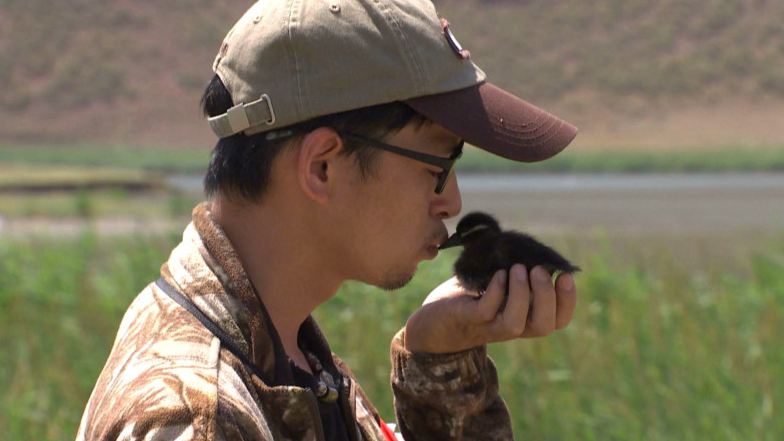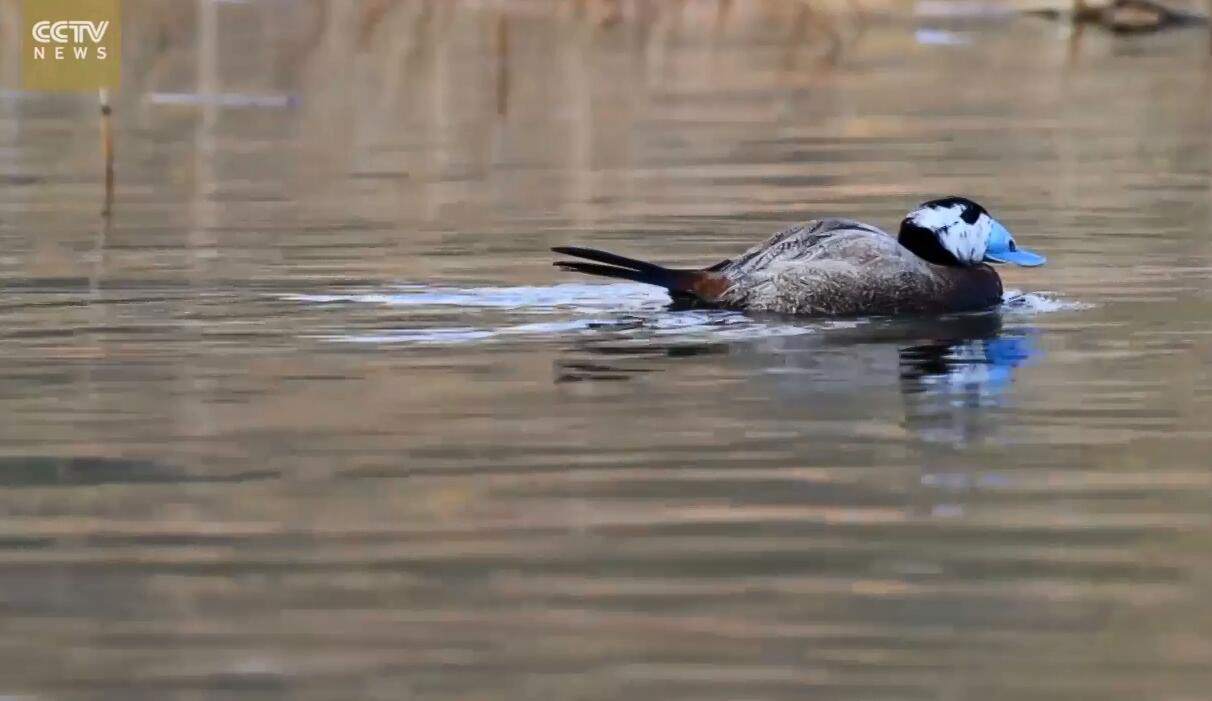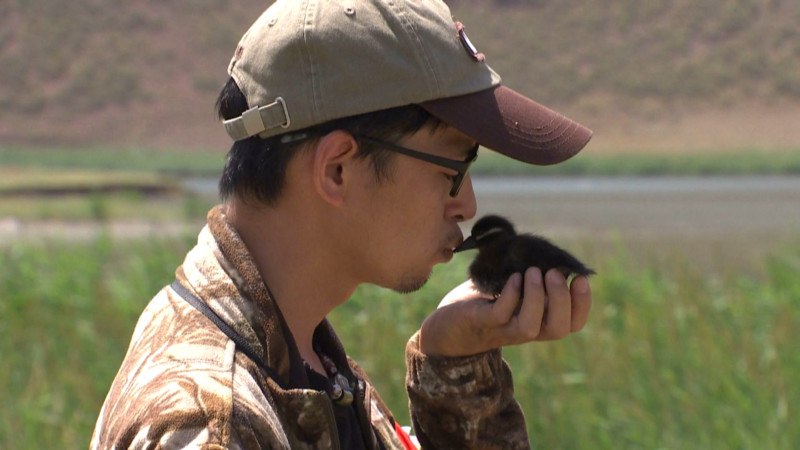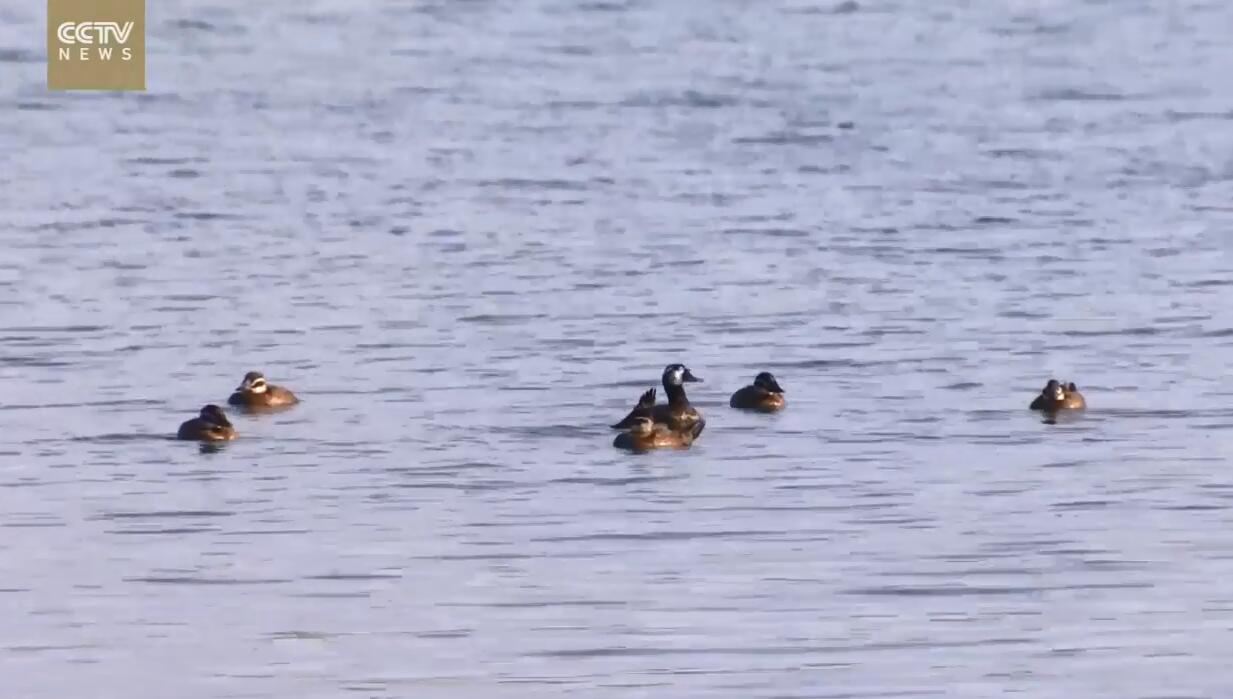
China
18:59, 08-Oct-2016
Saving a rare duck in Xinjiang
Updated
10:19, 28-Jun-2018

Han Bin, Senior Correspondent/ CCTV News
Urbanization often pits development against the environment, and in Xinjiang, one of the victims is the white-headed duck. Its numbers are decreasing globally. A small number are found at a small lake, just ten kilometers away from the regional capital Urumqi. I met a group of conservation volunteers, whose struggle with developers and common people will decide the fate of this endangered species in China.
THE HUNDRED BIRDS LAKE
Hidden among the densely populated urban area, is a small patch of wetland, named “Hundred Birds Lake”. The lake is home to some one hundred species of birds, but at least one of them is under threat.
The white-headed duck is on the world's list of endangered species, though it has not been registered in China. It is also somewhat of a star being the inspiration behind Disney's Donald Duck. This habitat provides the ducks with the resources to reproduce, but someone else wants their home. Construction is rapidly eroding the wetland.
Yan Xi and others belong to a group of local volunteers who have appointed themselves the ducks' protectors. Their short-term goal is to have all 24 ducks make it to migration season at the end of October. The challenge is enormous, and there is not much time as more and more buildings erect.
THE STORY OF “HOPE”

On summer weekends, throngs of people come to swim or have a cookout by the lake. In spring, many people come to steal the eggs. The volunteers have confiscated 43 eggs during their inspections. Only three were able to hatch, because most embryos stop growing at low temperatures.
On the east shore, the volunteers found a little duckling dying in water that had been polluted with oil. Yan Xi took it home for dissection, and found its organs tainted by oil. That was what killed the helpless young duck. Yan did not want to get rid of it, and preserved it as a specimen.
The bird had come out of the smallest egg of the three hatched ones, but it was the first to pip. The volunteers named it “Hope” because they hoped that all eggs could hatch, and they could go back to nature, and visit the lake to breed every year. But when it was found dead, they felt as though all hope was gone.
HUMANS HAVE LOST LOVE FOR NATURE

Yan Xi hopes the government can work together with them to turn this lake into a wetland reserve. Although they can’t stop the pace of urbanization, they want to protect the remaining wetlands. They hope children can see the rare ducks, rather than looking at a monument that would inform future generations about the ducks that had lived here once.
Yan says the development of this city is closing in on the lake. Many large birds have already taken off. If people do not disturb them, or destroy and pollute their environment, all living creatures can be integrated into nature. And people can observe and live with them. That is really a great life.
He says what they are doing is not to protect a particular species, but to protect the entire ecosystem. If the ecosystem is damaged, all kinds of species will die sooner or later. In some ways, humans have lost their love for nature. Yan Xi wants to turn this around, for the ducks, for the lake, and for the future.
CHINA'S RICHEST MAN WANTS DUCKS' HOME
Recently, the volunteers raised 80,000 yuan (12,000 US dollars) to build a protection fence in the key areas of the ducks’ habitat. But these efforts could be in vain as construction is speeding up, and there's a new possible plan to transform the wetland into a water park.
China's Wanda Group, which is owned by China's richest man, Wang Jianlin, has just signed a deal worth 20 billion yuan (3 billion US dollars) with the local government, to develop the lake’s surrounding areas into a new entertainment tourist spot. The result could have a devastating impact on the wetlands and birds, if preserving the habitat failed to be the priority for development. The Wanda Group is known for buying Hollywood’s Legendary Entertainment in January, and sees Urumqi’s potential value along China’s Belt and Road initiative.
The volunteers have mobilized one of China’s NGOs to write Wanda an official letter, asking the company not to damage the natural habitat. So far, they have not received any reply. All they can do now is to wait for the worse, and hope for the best. The ducks and their home have become a new focal point for different interest groups.
URBANIZATION DILEMMA

China’s rapid pace of urbanization has reached remote areas in its far western Xinjiang. Development has inevitably brought about many environmental problems. And I hope that the rare ducks will not become another victim. It is too early to predict the fate of the ducks, given the clashing interests. The story is still developing, but I strongly believe that something needs to be done before it’s too late.
It’s ironic that people want to go back to nature but when they have a chance to get close to nature, they often don’t know how to get along with it. The case of the white-headed ducks is sadly typical of how humans treat nature. There have been numerous cases where people sacrifice the ecosystem to development. It’s not the question of saving a couple of ducks – it’s an important question of how we treat nature and the future.
People need to understand that animal habitats are also humans’ living spaces. And we should protect them when conditions are good, rather than wait until they are on the verge of distinction. I hope the rare ducks will not become another victim. How Wanda develops the land around the lake deserves the attention of the whole society.

SITEMAP
Copyright © 2018 CGTN. Beijing ICP prepared NO.16065310-3
Copyright © 2018 CGTN. Beijing ICP prepared NO.16065310-3